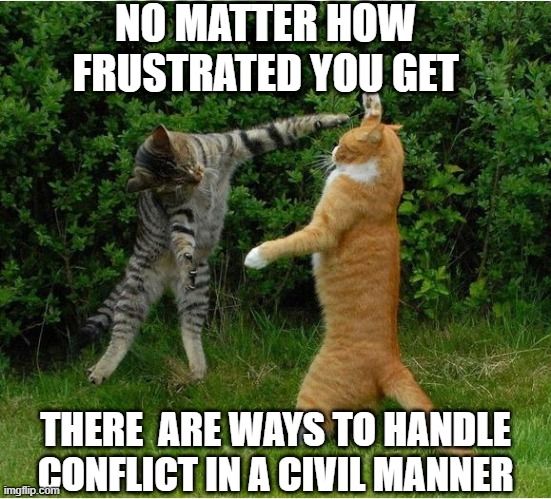
This logo isn't an ad or affiliate link. It's an organization that shares in our mission, and empowered the authors to share their insights in Byte form.
Rumie vets Bytes for compliance with our
Standards.
The organization is responsible for the completeness and reliability of the content.
Learn more
about how Rumie works with partners.
Disagreements are healthy and necessary in the workplace.
How you handle them will make or break your professional relationships.

What's In Your Control?
When you disagree with a colleague, it is important to express your honest opinion without offending that person.
For this to work, pay close attention to your:
body language — what you do

verbal language — what you say

Verbal Language
Be specific, open, and direct when talking.
Communicate your feelings and needs appropriately and respectfully.
Keep the conversation focused on the specific behaviors, work practices, or communication at issue and avoid personal attacks.

Quiz
Jasmine asks Ram, her co-worker, to do some tasks in a really aggressive tone. Ram resents the way Jasmine talks to him. What should he do?
Assertive communication can help solve problems more effectively and reduce feelings of anger, frustration, or guilt in the workplace. He could say something like, "I'm happy to help. In the future, I'd appreciate if you ask for my help more calmly."
Did you know?
Scenario: Missed Deadline
Richard is angry that his team missed a crucial project deadline. At a team meeting, he accuses Lily of dropping the ball. Lilly doesn't think she's to blame and wants to confront Richard without making the situation worse.

Quiz
What can Lily ask Richard to help deal with the conflict like a pro?
An open-ended question without accusations will allow Richard to go into detail about his reasoning, giving them both an opportunity to see the issue from another perspective.
Did you know?
Take Action
Think of a past situation where you disagreed with a coworker:

This Byte has been authored by
Chitra Krishnan
Lifelong Learner
